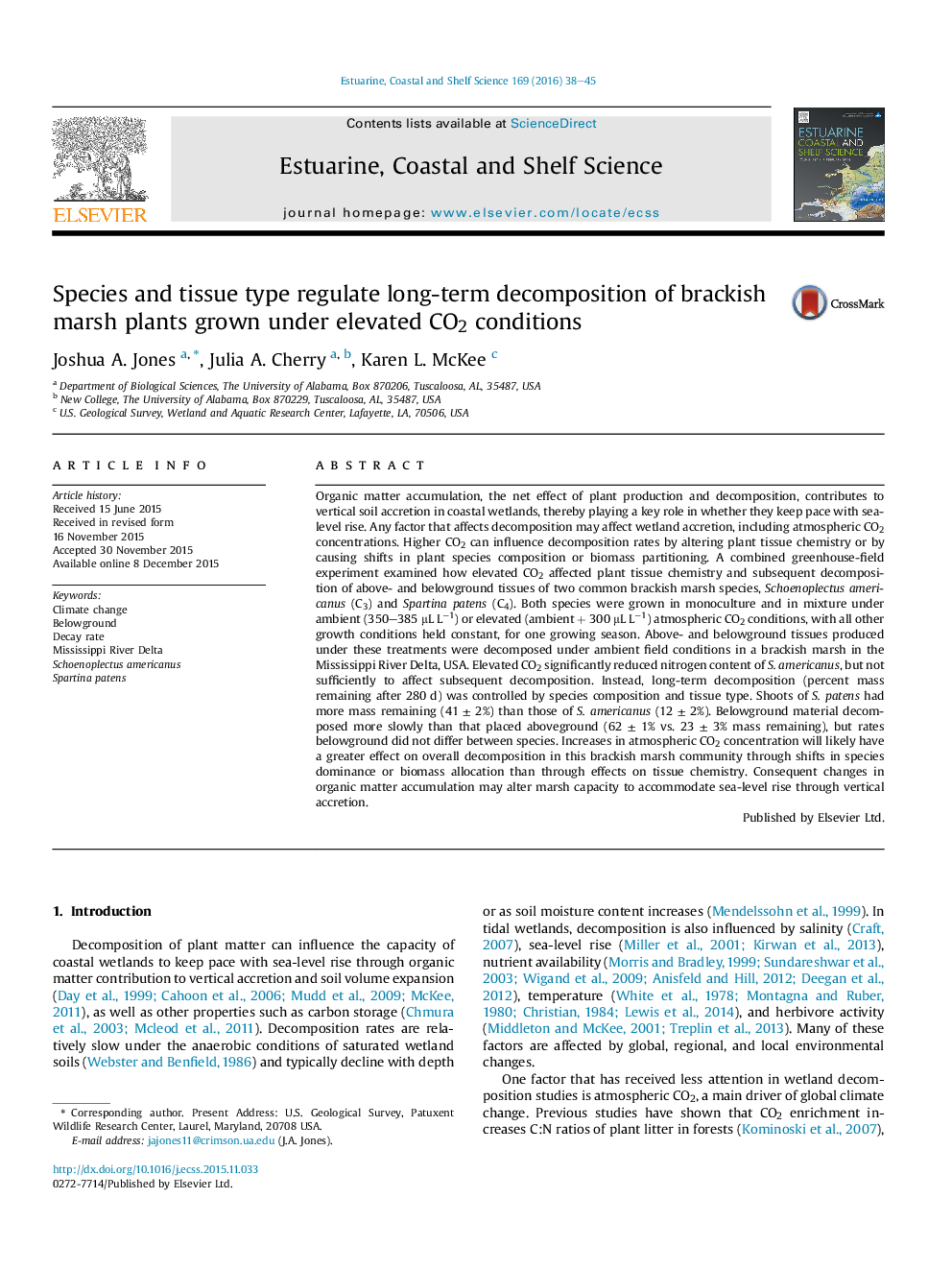| Article ID | Journal | Published Year | Pages | File Type |
|---|---|---|---|---|
| 6384506 | Estuarine, Coastal and Shelf Science | 2016 | 8 Pages |
â¢Elevated CO2 lowered tissue [N] of marsh plants, but not sufficiently to alter decay.â¢Instead, decay differed between plant species and between different plant parts.â¢Thus, CO2 may alter decay via changes in species composition or biomass allocation.
Organic matter accumulation, the net effect of plant production and decomposition, contributes to vertical soil accretion in coastal wetlands, thereby playing a key role in whether they keep pace with sea-level rise. Any factor that affects decomposition may affect wetland accretion, including atmospheric CO2 concentrations. Higher CO2 can influence decomposition rates by altering plant tissue chemistry or by causing shifts in plant species composition or biomass partitioning. A combined greenhouse-field experiment examined how elevated CO2 affected plant tissue chemistry and subsequent decomposition of above- and belowground tissues of two common brackish marsh species, Schoenoplectus americanus (C3) and Spartina patens (C4). Both species were grown in monoculture and in mixture under ambient (350-385 μL Lâ1) or elevated (ambient + 300 μL Lâ1) atmospheric CO2 conditions, with all other growth conditions held constant, for one growing season. Above- and belowground tissues produced under these treatments were decomposed under ambient field conditions in a brackish marsh in the Mississippi River Delta, USA. Elevated CO2 significantly reduced nitrogen content of S. americanus, but not sufficiently to affect subsequent decomposition. Instead, long-term decomposition (percent mass remaining after 280 d) was controlled by species composition and tissue type. Shoots of S. patens had more mass remaining (41 ± 2%) than those of S. americanus (12 ± 2%). Belowground material decomposed more slowly than that placed aboveground (62 ± 1% vs. 23 ± 3% mass remaining), but rates belowground did not differ between species. Increases in atmospheric CO2 concentration will likely have a greater effect on overall decomposition in this brackish marsh community through shifts in species dominance or biomass allocation than through effects on tissue chemistry. Consequent changes in organic matter accumulation may alter marsh capacity to accommodate sea-level rise through vertical accretion.
